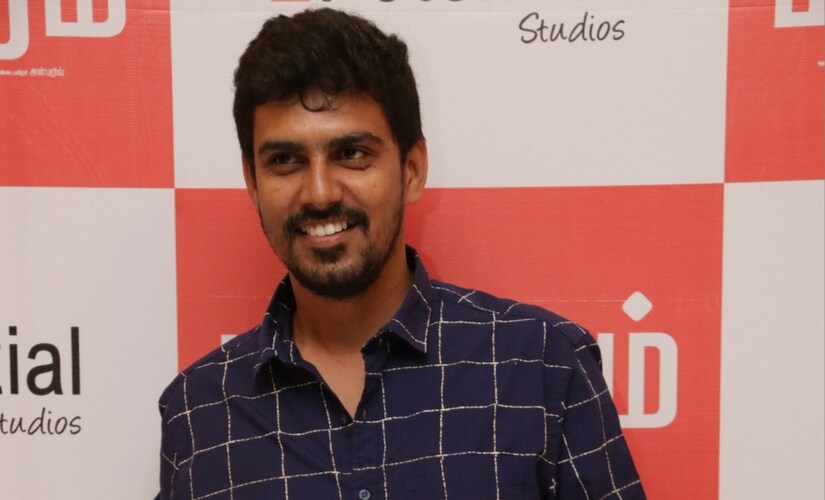
SR Prabhu/Image from Facebook.
SR Prabhu, the treasurer of Tamil Film Producers' Council and producer of commercially and critically acclaimed films such as Aruvi, Maanagaram and Theeran Adhigaaram Ondru to name a few, has profoundly argued why the withdrawal of the ongoing strike in Kollywood is impossible until the demands are fulfilled.
"Right from the early days of cinema, there was a clear distinction in charges and the earnings between the producers, distributors and theater owners. With the new technological shift, there was no discipline in regularizing the costs. It allowed certain corporate companies enter as service providers and taking approximately 40 crores a year in the name of Virtual Print Fee (VPF) and 80 crores for online booking from Tamil Nadu," read a rough translation of SR Prabhu's Facebook post where he attempted to elucidate the burning questions regarding the impasse in Tamil cinema, which has entered its second month.
Why cause an unprecedented loss to the industry for a minor issue like VPF?
"Over and over, false propaganda is being spread about VPF. Endless arguments have been made about the definition of VPF. Some claim that VPF is Virtual Print Fee and not Virtual Projector Fee. Let it be Virtual Print Fee itself. VPF service includes mastering, DCP encryption charges, KDM charges, screening room charges for producer/ artists, satellite bandwidth charges, last mile logistic charges, subtitle charges, and miscellaneous charges related to converting print to digital cinema package - DCP, compressing, transmitting and delivering the package to the projector. And, a handful of firms are ready to offer all the services mentioned above for a cost as low as Rs. 4000," clarified Prabhu.
Yesterday, TFPC confirmed that it has entered into an agreement with the Chennai-based Aerox Digital Cinemas. "When we wanted theater owners to ink a contract with new providers, they argue that they cannot break their agreement with the current player and are asking us to share the VPF charges until their ongoing contracts terminate. When there was a shift from analog to digital, they charged the print fee to the producers, which was just. But to make the producer pay for technological upgrades is not right," he pointed out.
"Besides earning a share from theatrical ticket sales, a theater owner also earns from theater maintenance charges (Rs 1 per person), parking charges, profits from the canteen, and a share from the advertisement revenue. In my opinion, if the theater owner still feels unprofitable with all these ancillary revenues, he should consider negotiating with the government for a tax reduction or a subsidy. They should not overburden the producer by escalating their projector expenses," he asserted.
Is it fair on the part of producers to demand a change overnight?
"We are not expecting overnight changes. These have been our demands for the past two years. TFPC led by Kalaipuli S Thanu even demonstrated a hunger strike for the same issue, which I hope everyone remembers. In the combined protest by the theater owners and film industry to increase the ticket price during Mersal release, the theater owners promised to agree to all the demands except VPF. But after the government gave the nod to raise the ticket price, the theater owners just went ahead with their duties and neglected our demands. We are not ready to trust the oral agreements anymore," insisted Prabhu
"Producers, nowadays, are facing losses up to 95 percent. If not now, then when is the right time to protest? It only needs two months of time to bring all our demands into action. So it is not unfair to expect immediate changes."
The embargo on new releases is understandable. But what is the reason to halt the film shootings?
"Already, we have a stockpile of films waiting to hit screens. If we allow shooting and production to happen during the strike, then the pending releases will increase beyond control. It will do no good for the industry. Unlike the past, now there's a good rapport between the producers and workers. Let this downtime be the last crisis of our industry," said Prabhu.
Other states have agreed to a 16 percent concession in VPF, and they had withdrawn their protests. But, why not Kollywood?
"Although Tamil cinema was the entertainment capital for southern film industries once, it's currently in a disastrous state. There is no right time to revamp the industry than now. And, in the other states, they have a strategy and are approaching this situation in a different angle. But the Tamil producers are in a position to resolve this promptly. But, days are not far for this issue to blow up in other states too."
When bringing down the remuneration of big stars can help the industry to a great extent, why give so much importance to other small issues?
Prabhu reiterated the TFPC's stand about transparency and computerization of tickets in all theaters to contend this question. "To regularize the remuneration of actors, transparency in ticket sales is mandatory. Now, all films roll out production with random numbers, and box-office reporting is also done in the same manner. Actors demand their salaries based on such reports. If ticket sale is entirely computerized, it will pave the way for a revenue-sharing model with actors, stabilized revenue, and bank loan opportunities. That why the TFPC is firmly emphasizing on this demand right from the beginning," he added.
Like Vishal, Prabhu also stated that the ball is now in the theater owners' court. "When we started this protest, it was against one private firm. Now, it is being seen as a protest against theatre owners because the answers to all our demands lie only with them. If this protest ends without our legitimate requirements are met, everyone's effort will go in vain. That's the reason the workers and technicians are supporting the producers by taking a united stand," Prabhu signed off on a concluding note.
Published Date: Apr 08, 2018 11:34 AM | Updated Date: Apr 08, 2018 11:34 AM